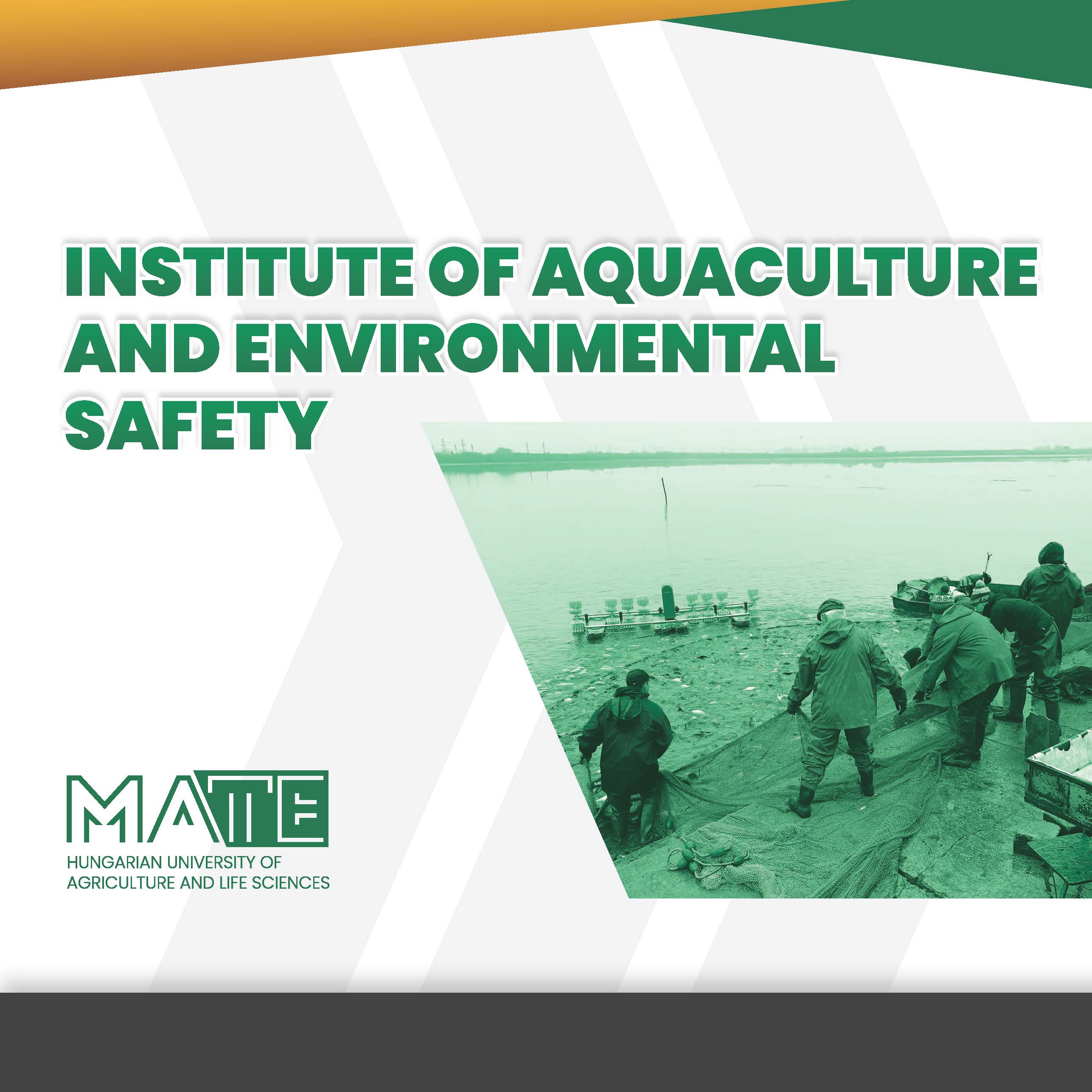Introduction - Institute of Aquaculture and Environmental Safety
Introduction
Introduction
Last modified: 17. October 2025
The Institute of Aquaculture and Environmental Safety of the Hungarian University of Agriculture and Life Sciences (MATE) is one of the largest organizational units of the University. The aquaculture and environmental safety education and research units in Gödöllő, Kaposvár and Keszthely came under the umbrella of the University on August 1, 2020. On February 1st, 2021, the NAIK Research Centre for Fisheries and Aquaculture (HAKI) joined this organization as well. Together, these units comprise the current Institute of Aquaculture and Environmental Safety.
By the objectives set out in the founding document of MATE, the Institute has the following tasks:
- The development of innovative technologies in pond Aquaculture and intensive fish farming with an environmental approach.
- Improvement of traditional fish feeding methods combined with the development of complete fish feed.
- Mapping the genetics and reproductive biology of existing and new commercial fishes using -omic techniques.
- Development of sustainable and circular fish farming systems.
- Defining ecological services in the sector (planning and management).
- Establishing conditions for the production of fish for recreational fishing in natural waters.
- Water quality and ecotoxicological monitoring of aquaculture water bodies.
- Environmental safety analysis of surface and ground waters.
The Institute has an extensive educational portfolio across the entire range of higher education training (BSc, MSc, and PhD) and is active in the field of professional adult education (specialized in-service training). The existing research and development base of the institute provides a suitable background for examining all the issues affecting the sector. This infrastructure provides an excellent opportunity to meet practical educational needs.
The R&D activity of the Institute is outstanding. In addition to basic research, we focus on applied (industrial) research that examines and solves real problems.
With innovations in professional consulting, education, research, and development, the Institute plays a major role in international professional networking. Further development of this aspect is one of our priority goals.
The Institute aims to effectively support the development of the fisheries-aquaculture-environmental safety sector by maintaining the existing for-profit and non-profit cooperation while also involving new partners in order to better meet the educational, research, innovation, and consulting requirements of the sector.
Structure of the Institute:
- Institute Director: Dr. Balázs Kriszt, associate professor
- Deputy Head of Institute (general and science): Dr. Ákos Horváth, professor
- Deputy Head of Institute (education): Dr. Edit Kaszab, associate professor
The Institute of Aquaculture and Environmental Safety operates at five sites, with six departments and one research centre organized as follows:
Departments operating at the Szent István Campus in Gödöllő:
- Department of Aquaculture,
head: Dr. Ákos Horváth, professor, doctor of the Hungarian Academy of Sciences - Department of Molecular Ecology,
head: Dr. András Táncsics, professor, doctor of the Hungarian Academy of Sciences - Department of Environmental Toxicology,
head: Dr. István Szabó, associate professor - Department of Environmental Safety,
head: Dr. Edit Kaszab, associate professor
Department operating at the Szent István Campus site in Agárd:
- Department of Fishery Research and Development
head: Dr. Tamás Müller, professor
Department on the Georgikon and Kaposvár Campuses:
- Department of Applied Fish Biology,
head: Dr. Tamás Gergely Molnár, professor
Organizational unit operating in Szarvas:
- Research Centre for Fisheries and Aquaculture (formerly NAIK-HAKI),
head: Dr. Gergő Gyalog, senior research fellow


